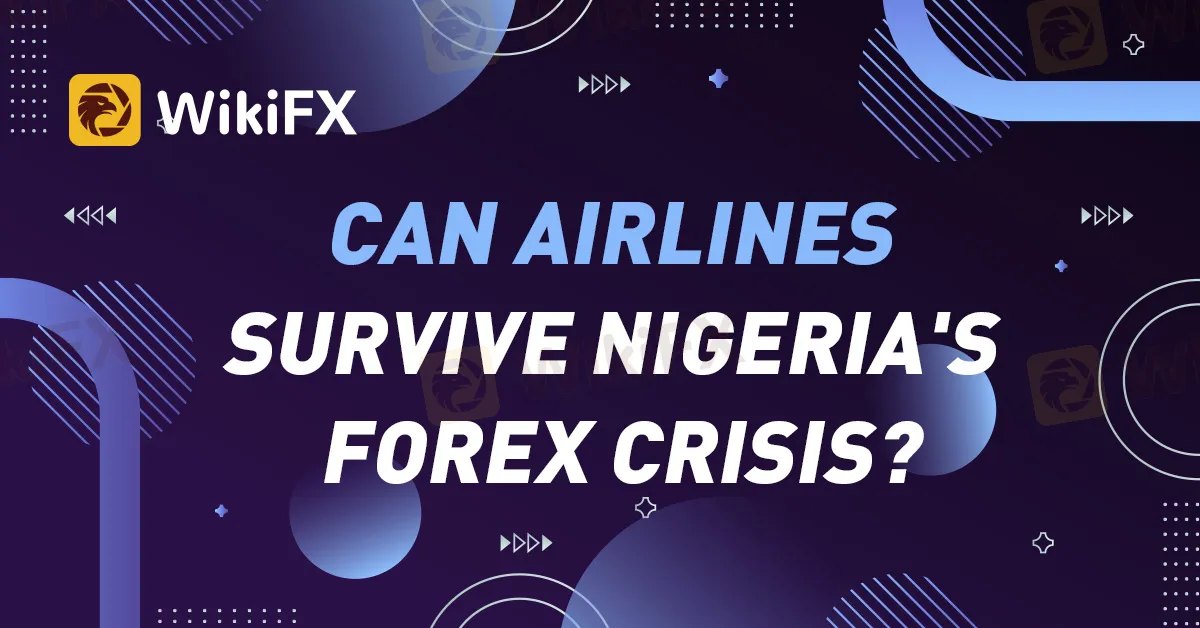Abstract:The aviation sector in Nigeria, including the airline industry, is currently under existential threat due to a severe lack of foreign currency (forex). The proverbial sword of Damocles hangs on the necks of both foreign and domestic airlines operating in Nigeria.

The aviation sector in Nigeria, including the airline industry, is currently under existential threat due to a severe lack of foreign currency (forex).
The proverbial sword of Damocles hangs on the necks of both foreign and domestic airlines operating in Nigeria.
The price of aviation fuel (Jet-A1) has skyrocketed, ranging from roughly two hundred naira per liter a year ago to close to nine hundred naira at this time—supported by the product's worsening shortage in Nigeria.
The nation's ongoing currency crisis will be added to this lingering painful fuel shortage. This shortage of foreign currency has resulted in the alarming loss of the nation's external reserves, continued depreciation of the naira against the dollar, and the inability of many multinational corporations (including many airlines) to repatriate their business proceeds/dividends.
There are hundreds of millions of dollars in such “un-repatriated” funds locked in Nigeria as a result of the lack of foreign exchange (dollar, euro, pound sterling, etc.) to repatriate, even as the impacted businesses continue to slog along in the constrictive local environment.
In fact, a number of businesses have recently been forced to leave Nigeria due to the country's gnawing currency issue and overall unfavorable economic environment, which includes rising insecurity and an inflation rate that is now 20%.
Particularly, foreign airlines operating in Nigeria have frequently griped about their inability to transfer money back to their home nations. They have brought up this issue with high representatives of the Federal Ministry of Aviation, Ministry of Finance, and even the Central Bank of Nigeria on numerous occasions.
Unfortunately, none of these government agencies had offered them any helpful assistance, which just served to make their situation more hopeless and isolated.
The apex bank's unwillingness to make the dollar available for the carriers to “take home” has resulted in “blocked money” for these airlines reaching roughly US$600 million (and continuing climbing rapidly), according to documents that are readily available.
One of the large carriers, Emirate Airlines, who felt as though it was at its wits' end, recently issued a statement in which it claimed that it “has tried every avenue to address our ongoing challenges in repatriating funds from Nigeria, and we have made considerable efforts to initiate dialogue with the relevant authorities for their urgent intervention to help find a viable solution.”
The multinational carrier continued to moan, Unfortunately, there has been no improvement. Therefore, in order to prevent future losses and the impact on our operational expenses that are continuing to rise in the market, Emirates has made the painful decision to halt all flights to and from Nigeria, starting September 1, 2022.
Emirate earlier reduced its flight frequency to Nigeria from eleven to seven in an effort to reduce “trapped funds,” but as of September 1, 2022, it has decided to completely leave the country.
British Airways, which recently notified its customers of a “imminent spike in its travel tickets,” has already scaled back the number of times it offers flights to Nigeria.
In actuality, Turkish Airlines and British Airways announced they will stop selling tickets in naira. The other day, both airlines stated in separate letters that Nigerian travellers could only pay for tickets in US dollars.
Turkish Air said in particular, “dear business partner, kindly be informed that as of today, only C and Y fare classes will be available on GDSs for sale in Nigeria; unused tickets will be upgraded to Y and C class for voluntary reissue cases, fare and tax difference shall be collected for inbound or outbound travel.”
However, much earlier this year, APG Interline E-Ticketing (IET) informed its business partners in a travel advice that its members would start selling tickets in Nigeria.
In order to avoid exorbitant airfares and the inconveniences caused by frequent flight delays and/or cancellations, (potential) passengers are rejecting air travel, and business organizations and associations are switching mostly to “virtual” meetings for their executives rather than physical ones.
Who knows how long the airlines (aviation business) will slog along in the current situation. Exists a lifeline from the influential people?










